Today’s CometWatch entry is a double feature, showing two NAVCAM images taken about twelve hours apart, on 18 and 19 December 2015, when Rosetta was around one hundred km from the comet nucleus.
While, at first sight, the two images look quite similar, a closer inspection will reveal one interesting difference… Can you spot it?
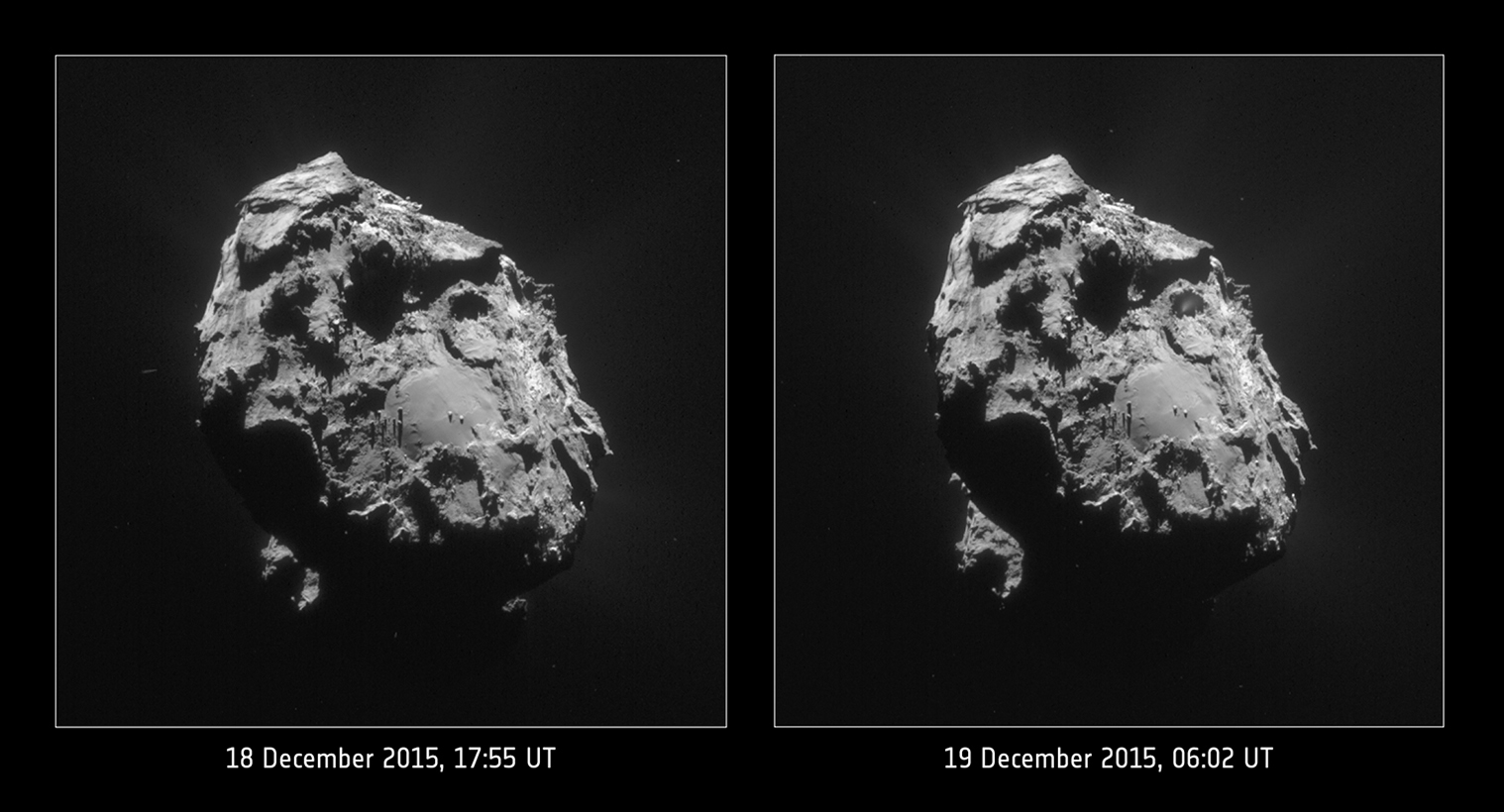
NAVCAM images of Comet 67P/C-G taken on 18 December 2015, 99.9 km from the nucleus (left), and on 19 December 2015, 101.6 km from the nucleus (right). The images were cropped and lightly enhanced in contrast. Credits: ESA/Rosetta/NAVCAM – CC BY-SA IGO 3.0
Both images focus on the Imhotep region, located on the comet’s large lobe. Imhotep is one of the most geologically complex and diverse portions of 67P/C-G, presenting both smooth and rocky terrains, small and large circular features, and over 200 boulders.
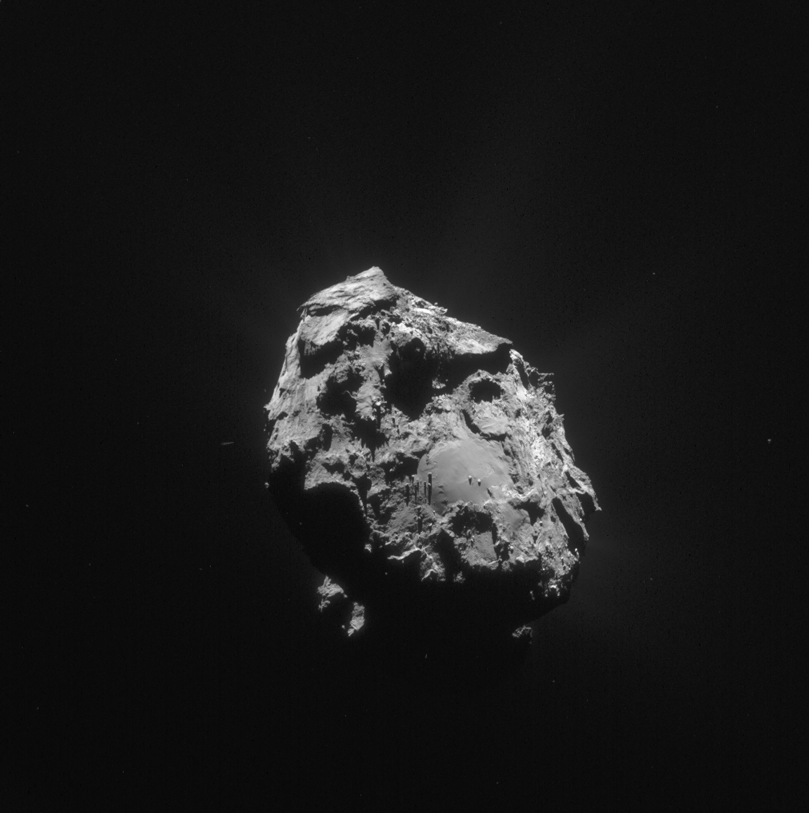
Animated GIF based on the two NAVCAM images of Comet 67P/C-G from 18 and 19 December 2015. Credits: ESA/Rosetta/NAVCAM – CC BY-SA IGO 3.0
The difference between these two CometWatch images is to be found in one of Imhotep’s large circular features – also known as accumulation basins – in particular, in the one just to the top right of the image centre. A subtle jet of dust, somehow suggestive of the ‘sunset jets’ detected with the OSIRIS camera in April 2015, is visible against the shadowed cliff of the basin in the 19 December image, while no sign of such activity can be seen on the same region in the image from previous day. There are also small differences in orientation and illumination between the two images.
Portions of other comet regions are also portrayed in these two pictures: Ash along the left edge of the large lobe and Khepry on the lower and right sides. A hint of the small lobe is visible in the background of both images, towards the lower left.
The uncropped, enhanced images as well as the original 1024 x 1024 frames are provided below. The scale is 8.5 m/pixel for the 18 December image and 8.7 m/pixel for the 19 December one; they measure 8.7 and 8.9 km across, respectively.
18 December 2015:
19 December 2015:

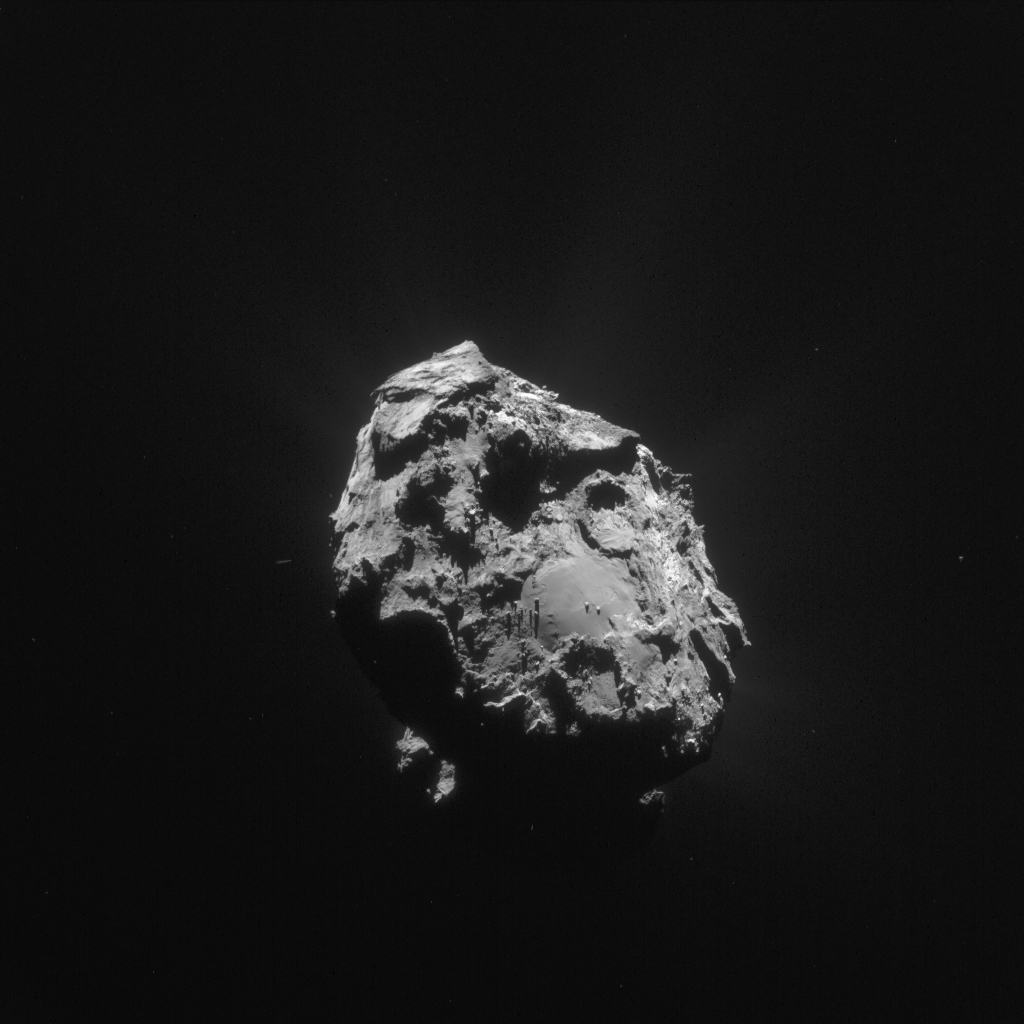
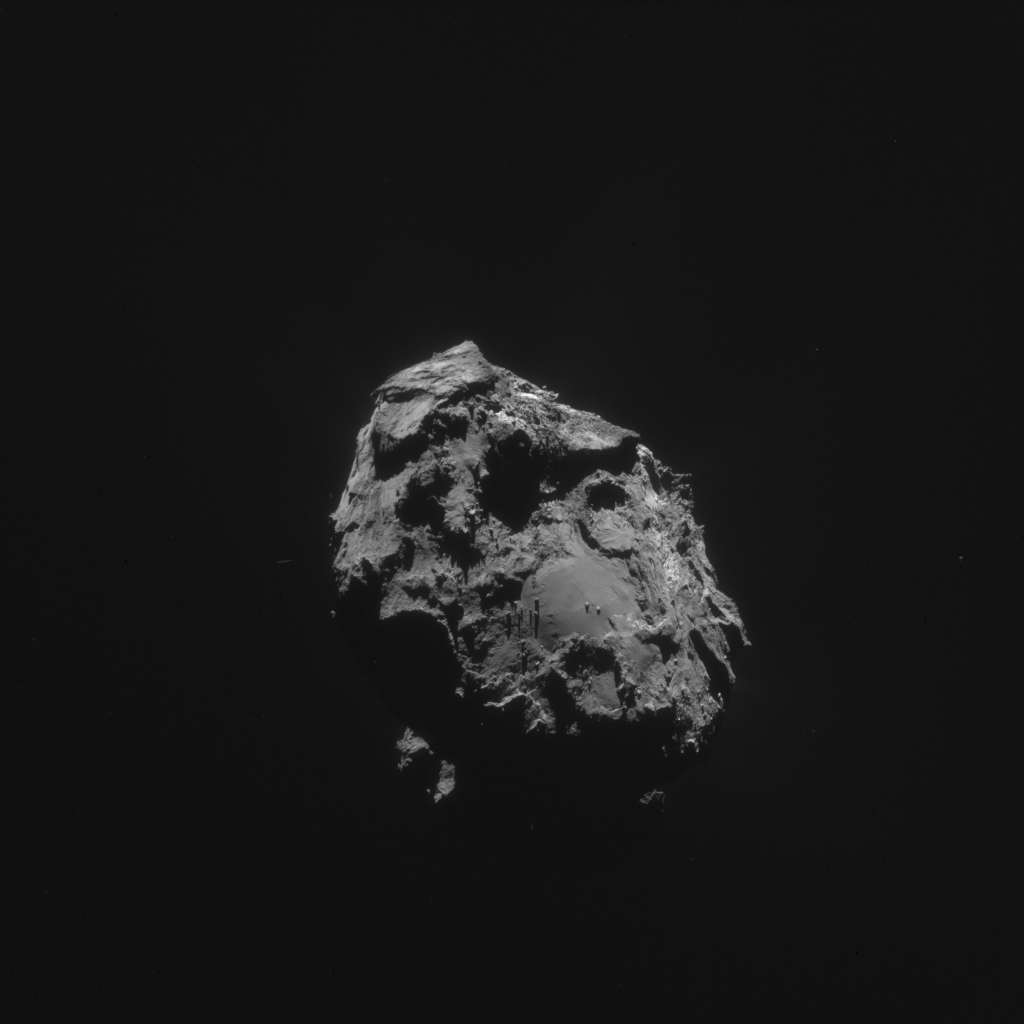
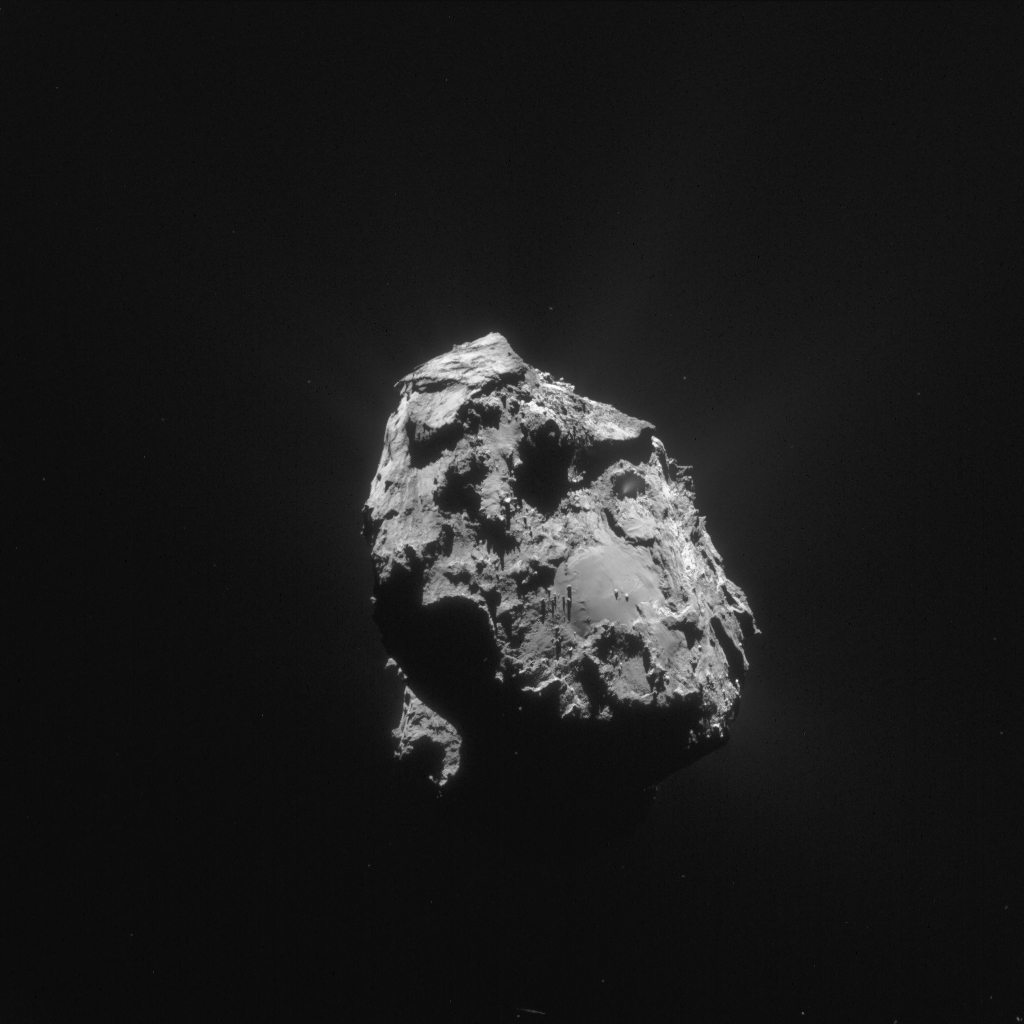
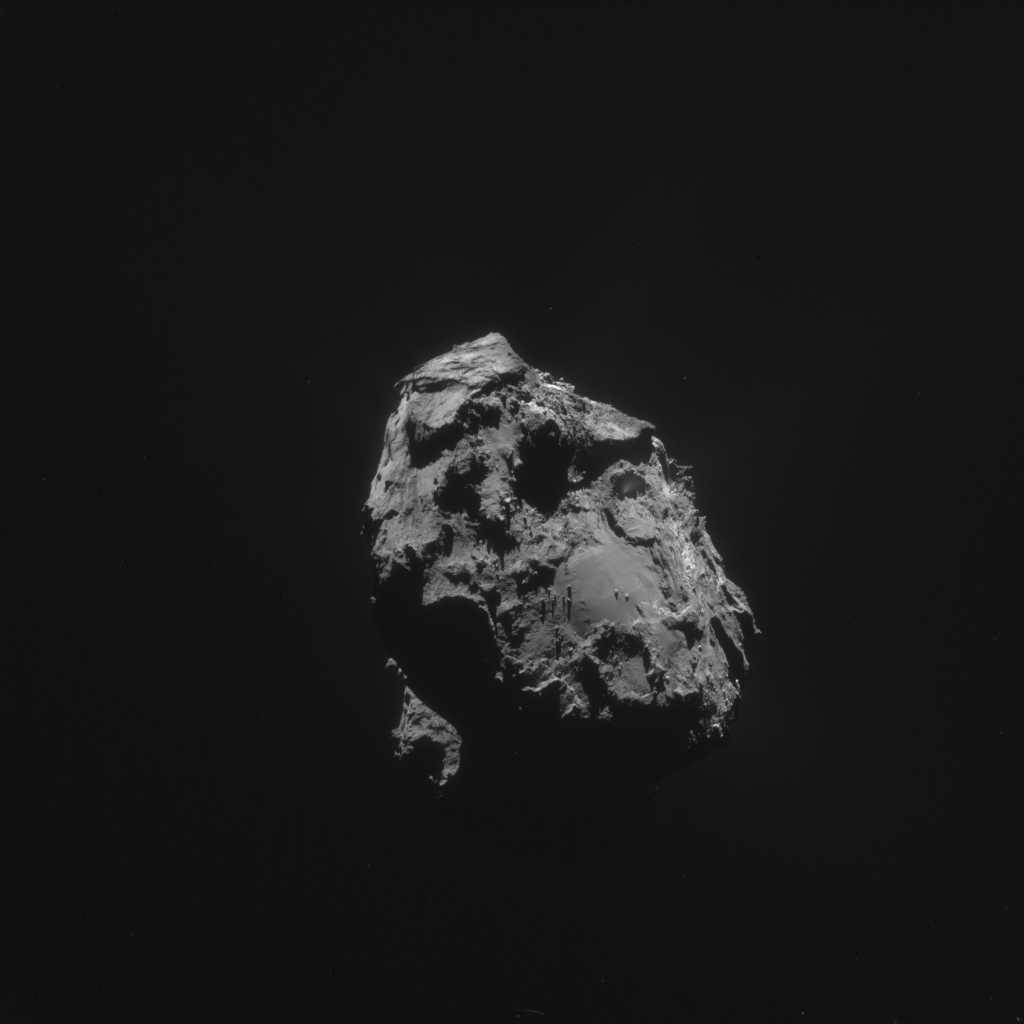
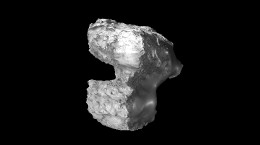
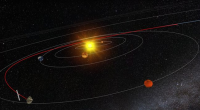
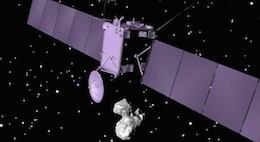
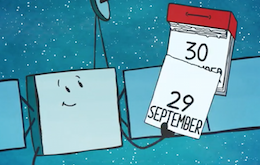
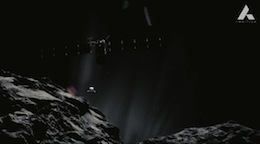
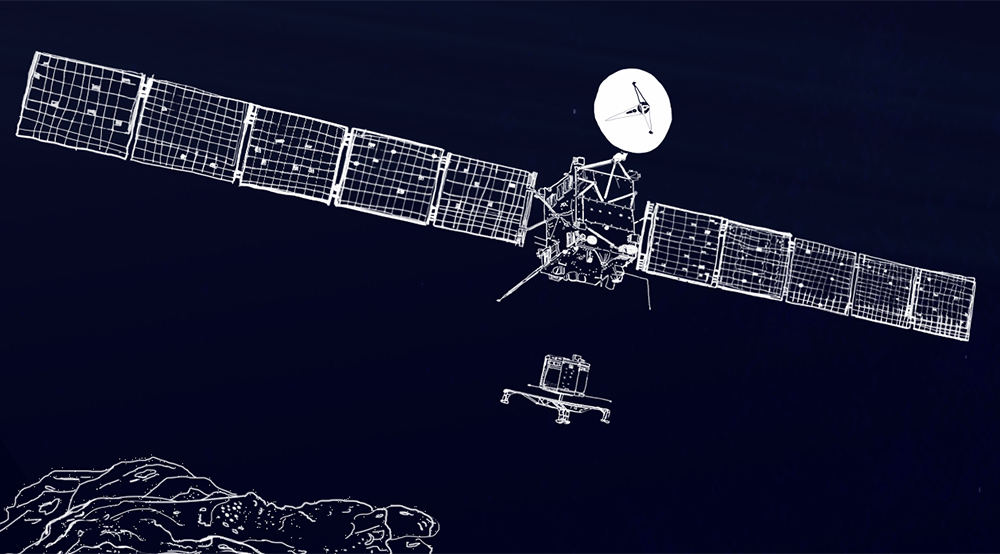
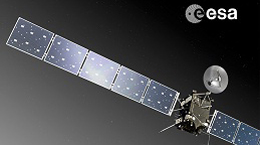
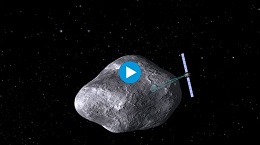
Discussion: 13 comments
Hi Claudia and H. NAVCAM Team: This perspective and illumination is fortunate in that it show that former ‘circular features’ at Imhotep preserves almost no circularity.
Subduing and deposition of flows suggest the “V” of the two dominant layering families.
I see a monkey!
People interested in more details about such jet, along with other examples, check this article (open access).
https://arxiv.org/abs/1512.03193
Figure 3 in the paper shows another view of the same jet, detected in April 2015.
Thanks for the link, J-B. I tried to post it a few days ago, but had captcha problems.
Very interesting in light of the observed recession of the large scarp at Tempel 1, that was seen to retreat by around 50m between the DI and Stardust missions.
Thanks Jean-Baptiste et Al. First document I read about jet structure. Also about making the additional effort to include Out-Reach blocks in it and locating in the open 🙂
“The narrow geometry of fractures not only describes a heat
trap, but from the point of view of gas dynamics is also similar to a pipe or a nozzle…Of course, this description is highly speculative…”
🙂
Impression is from jets’ photos taken at arrival that there is a small transient phase where jets are pulsating. Spheroid shaped dust emissions?
Those spheroidal emissions drove me to the idea that a certain electric pressure had to be reached before gravity could be superseded. After that charged particles leaved surface, pressure accumulation had to be restarted. An oscillating phenomena.
Of course, sublimation being the main force. Field providing the threshold, triggering the lift off…
Of note that at fig.2 the picture-in-picture signal a source at at a fail in the ‘slab’. The others sources at the eroding perimeter of imhotep…
Source distribution at fig. 3 statistically too much regular, appear to be following vertices or edges, according to Ducky’s photo at background.
Planar geometry keeps on command 🙂
‘Burned’ chimneys also present around Hatmehit, with similar distribution.
[At vertices present in between ‘craters’ (tagged so at that time)…]
You can spot the interesting difference with stereo view.
Get close to the screen 50cm to 80cm. Look at the pictures for few seconds for good focus. Then make cross view to see three pictures. The middle one became 3D. The interest area became a little blurry.
Enjoy.
Hi Claudia!
Excellent pictures! Can be used to see the comet in 3D, amazing!